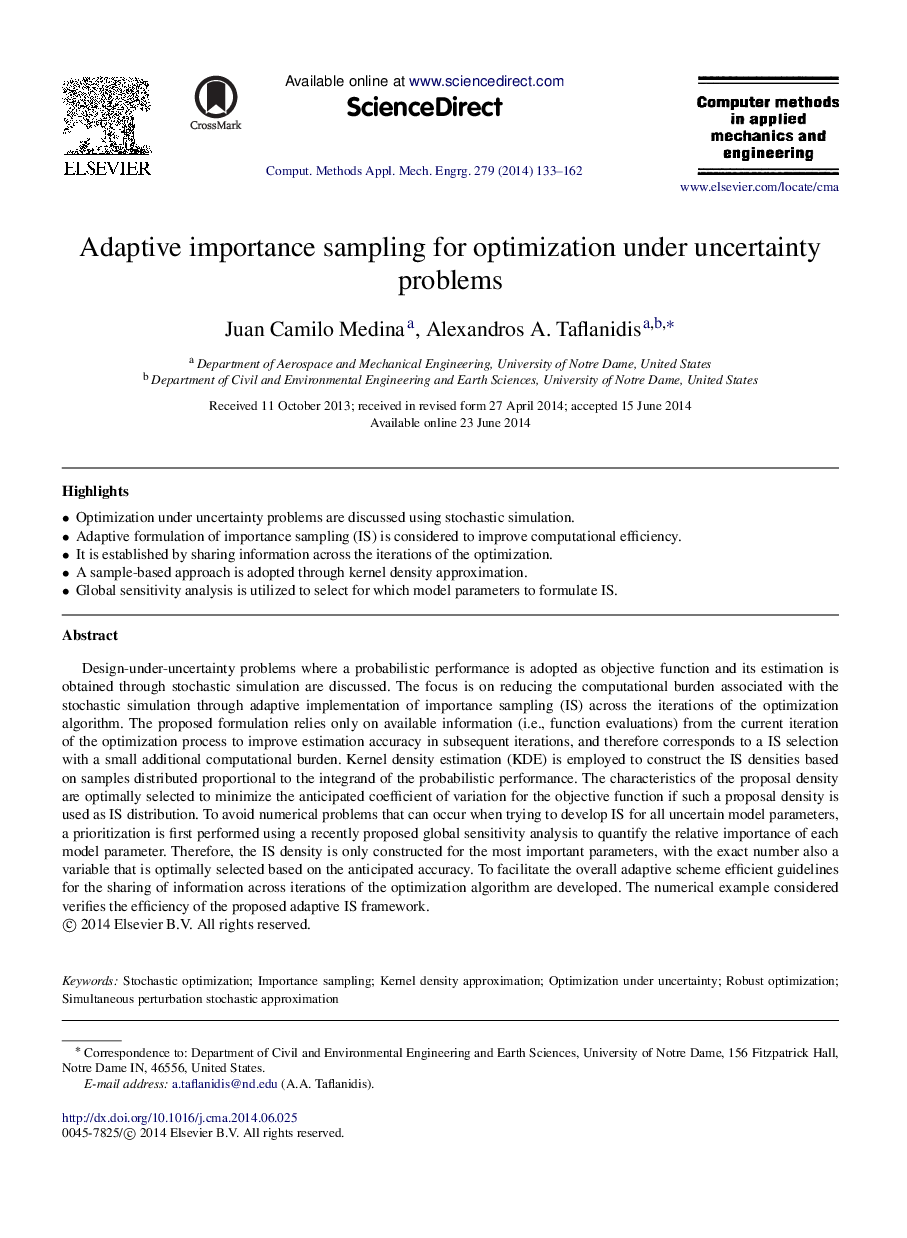| Article ID | Journal | Published Year | Pages | File Type |
|---|---|---|---|---|
| 6917410 | Computer Methods in Applied Mechanics and Engineering | 2014 | 30 Pages |
Abstract
Design-under-uncertainty problems where a probabilistic performance is adopted as objective function and its estimation is obtained through stochastic simulation are discussed. The focus is on reducing the computational burden associated with the stochastic simulation through adaptive implementation of importance sampling (IS) across the iterations of the optimization algorithm. The proposed formulation relies only on available information (i.e., function evaluations) from the current iteration of the optimization process to improve estimation accuracy in subsequent iterations, and therefore corresponds to a IS selection with a small additional computational burden. Kernel density estimation (KDE) is employed to construct the IS densities based on samples distributed proportional to the integrand of the probabilistic performance. The characteristics of the proposal density are optimally selected to minimize the anticipated coefficient of variation for the objective function if such a proposal density is used as IS distribution. To avoid numerical problems that can occur when trying to develop IS for all uncertain model parameters, a prioritization is first performed using a recently proposed global sensitivity analysis to quantify the relative importance of each model parameter. Therefore, the IS density is only constructed for the most important parameters, with the exact number also a variable that is optimally selected based on the anticipated accuracy. To facilitate the overall adaptive scheme efficient guidelines for the sharing of information across iterations of the optimization algorithm are developed. The numerical example considered verifies the efficiency of the proposed adaptive IS framework.
Keywords
Related Topics
Physical Sciences and Engineering
Computer Science
Computer Science Applications
Authors
Juan Camilo Medina, Alexandros A. Taflanidis,
